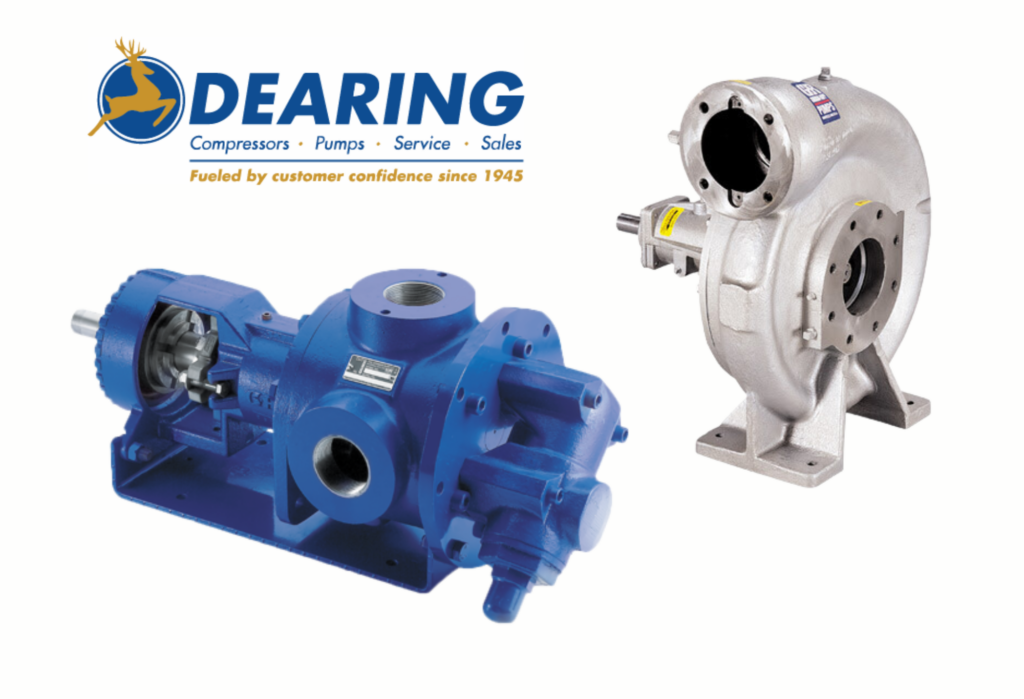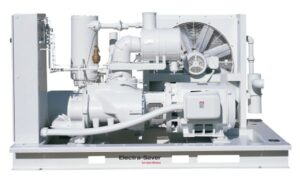Industrial pumps play a crucial role in a wide range of applications, powering everything from water supply systems to chemical processing plants. Two common types of industrial pumps are positive displacement pumps and centrifugal pumps. Each type has its unique characteristics, advantages, and limitations. In this blog post, we will delve into the differences between positive displacement and centrifugal pumps, exploring their respective pros, cons, and ideal applications to help you make informed decisions for your pumping needs.
Positive Displacement Pumps:
Positive displacement pumps work by trapping a fixed amount of fluid and forcing it through a discharge pipe. These pumps create a constant flow rate, making them suitable for applications requiring precise volume control and high-pressure capabilities. Here are some key attributes of positive displacement pumps:
Pros:
- Consistent Flow and Pressure: Positive displacement pumps provide a steady flow rate, independent of changes in the system’s pressure, making them reliable for applications where a stable output is critical.
- Suitable for Viscous Fluids: These pumps excel at handling thick and viscous fluids, such as slurries, oils, and syrups, making them ideal for industries like food processing, pharmaceuticals, and petrochemicals.
- Self-Priming: Positive displacement pumps can self-prime, meaning they can draw fluid into the pump without external assistance, which is advantageous for scenarios with intermittent fluid flow.
Cons:
- Limited Flow Rates: Positive displacement pumps may have limitations in high flow rate applications, as their output is typically fixed and constant.
- Sensitivity to Pressure Changes: These pumps can be sensitive to variations in the system’s pressure, potentially causing damage or inefficiencies if not appropriately managed.
Ideal Applications:
Positive displacement pumps are well-suited for tasks that require precise volume control, handling viscous fluids, and applications demanding a constant flow rate. Some common applications include metering and dosing, hydraulic systems, and high-pressure pumping requirements.
Centrifugal Pumps:
Centrifugal pumps utilize an impeller to create a swirling flow pattern within the pump casing, generating centrifugal force that propels the fluid outward. As a result, these pumps are known for their high flow rates and are widely used in various industries. Here are the key features of centrifugal pumps:
Pros:
- High Flow Rates: Centrifugal pumps are excellent at delivering high flow rates, making them ideal for applications where moving large volumes of fluid is essential.
- Simple Design and Low Maintenance: These pumps have a relatively simple design with fewer moving parts, reducing maintenance requirements and associated costs.
- Suitable for Low to Medium Viscosity Fluids: Centrifugal pumps are effective for handling low to medium viscosity fluids, such as water, chemicals, and light oils.
Cons:
- Inconsistent Flow at Variable Pressure: The flow rate of centrifugal pumps is dependent on the system’s pressure, leading to fluctuations in output when pressure changes occur.
- Not Ideal for Viscous Fluids: Centrifugal pumps are less efficient at handling highly viscous fluids, as the impeller design may become less effective.
Ideal Applications:
Centrifugal pumps find wide application in processes that require high flow rates, like water supply systems, wastewater treatment, cooling systems, and general fluid transfer tasks.
Conclusion:
When choosing between positive displacement and centrifugal pumps, it’s essential to consider the specific requirements of your application. Positive displacement pumps offer constant flow and pressure, making them suitable for precise and high-pressure applications with viscous fluids. On the other hand, centrifugal pumps are favored for their high flow rates and simplicity, making them ideal for fluid transfer tasks and scenarios where consistent flow control is not a top priority.
Ultimately, a thorough understanding of your project’s needs, along with consultation from pump experts, will help you make the most appropriate choice for optimal pump performance and efficiency in your industrial processes. Contact a Dearing expert today so we can assist you with choosing the right equipment for your project.




